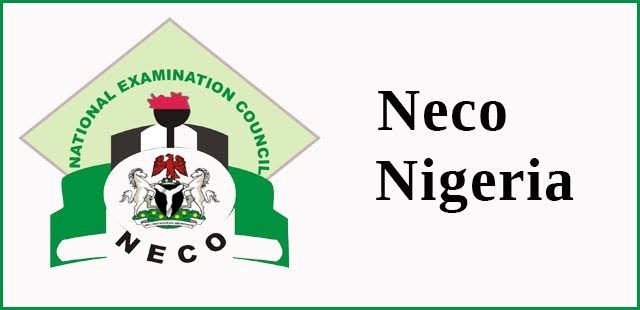
Note:- All Obj & Theory Government Is All Combined Here.
2022 NECO GOVERNMENT ANSWERS
Government-Obj!
01-10 BBCDCADABA
11-20 EDBCCECEAA
21-30 BADDAEDDAA
31-40 ACCBADEBDA
41-50 CEDCCEAAEA
51-60 CBEBADDCAA
============================
THEORY ANSWERS
_INSTRUCTIONS: Answer Five (5) Questions In All, Two (2) From Section A and Three (3) From Section B_
SECTION A
(1a)
A bill is a proposed law under consideration of the legislative arm which later be passed into law by the approval of the executive.
(1b)
(i) First reading:
This is the first stage of passing bill into law which requires the presentation of the drafted bill to the parliament. The bill is read to the hearing of the members of the legislature by the clerk of the house. After the title of the bill is read and there is no opposition, it will be printed into leaflets and distributed among the members for proper assessment before the second reading.
(ii) Second reading:
This is the stage which the bill will be deliberated and debated on. The presenter of the bill will be invited to explain the purpose of the bill and defend it. After which, the members will vote the bill to the next stage. If the bill receives majority votes, it will move to the next stage and if not, it will end without any amendment.
(iii) The committee stage:
Here, the bill is passed to one or more committees in the house for necessary amendment and discussion. There are different committees in the house which deliberate on different matters.
(iv) Report stage:
This is the stage in which the various findings about the bill will be documented during the of amendment. The findings or reports about the bill will be read by the speaker or Chairman of the standing committees.
(v) Third reading:
This is the last stage in which proper assessment and scrutinization will be carried out to ensure that the bill is properly amended. During this stage, another and final vote will be carried out before the bill is presented to the executive for approval. Once the assent is given to the bill by the executive president, then it bcomes law
******************************************************
SECTION A
(2)
(i) State of emergency:
When a state of emergency is declared in a country or state, citizens will find some of their rights denied in order to restore peace and order.
(ii) Custom and tradition:
The application of the rule of law may be limited in some cases when the custom and tradition of the people must be respected and preserved.
(iii) Diplomatic immunity:
Due to the fact that ambassadors and high commissioners enjoy some immunities and cannot be prosecuted or punished in the country where they are serving also pose a great limitation to the application of the rule of law.
(iv) Legislative immunity:
This also undermines the application of the rule of law due to the fact that the members of the parliament cannot be sued or prosecuted for any false or libellous statement made in the house whereas an ordinary man on the street can be punished for the same statement.
(v) Delegated legislation:
The delegation of law making power to some bodies other than the legislature often brings about complexity of law and abuse of such power which may lead to violation of fundamental human rights of the citizens even without the opportunity of seeking redress.
(vi) The type of government:
The type and system of government practiced in a country will determine the degree of the application of the rule of law. In a country where military or unitary system of government is adopted, there will be minimum application of the rule of law.
******************************************************
*BONUS ANSWER*
*NECO GOVERNMENT*
*SECTION A*
*(NUMBER 3)*
(Pick any 6)
(i)A citizen is a legal member of a state with full constitutional rights While Alien is not a legal member of a state
(ii)Citizen owes a duties and obligations to the state while Alien does not owe any duty or obligation to the state
(iii)A citizen must be ready to defend his country when called upon to do so , while an Alien cannot be called upon
(iv)An Alien cannot vote or be voted for in any political election While A citizen can vote and be voted for.
(v)A citizen can take up any job of his choice in any area of job selection While An Alien cannot.
(vi)The life of a citizen is fully under the protection of the state While An alien life is not fully under the protection of the state.
(vii)The legal rights of a citizen are guaranteed Whole The right of an Alien is not guaranteed.
=============•====================
SECTION B:-
Answer Three (3) Questions from This section
(5)
(i) Free and fair election:
Democracy is Characterised by regular and periodic free and fair election. In a democratic state, the citizens cast their votes and elect those that will represent their interest in various political offices as a means of indirect participation in running the affairs of the state but in a military system, it is devoid of free and fair election but selection by the supreme leader.
(ii) Application of rule of law:
Democracy recognizes the equality of all citizens or classes of people in the country regardless of their economic, political or social status as it is expressed by the rule of law and due process.
(iii) Existence of political parties:
Democracy recognizes the establishment and existence of political parties preferably multiple party system in which individual parties present candidates who compete for power in the general election.
(iv) Existence and respect of fundamental human right:
In a democratic system of government, fundamental human rights are recognized, protected and respected in all aspects of life which is not respected in the military system.
(iv) Supremacy of the constitution:
Democracy recognizes the supremacy of the constitution which determine the operationa and functions of all sectional groups and organizations in the state, showing that nobody is above the law but the constitution.
******************************************************
(6a)
A local government authority is an organization that is officially responsible for all the public services and facilities in a particular area.
(6b)
[PICK ANY FIVE]
(i) Statutory functions:
The local governments were given specific statutory functions to perform.
(ii) Single tier:
All the local governments were made all- purpose single tier local government.
(iii) Appointment:
There was the appointment of full-time chairmen and supervisory councillors.
(iv) Condition of service:
The condition of service oflocal government staffwasunified with that of their counter-parts in state and federal civil service.
(v) Grants:
Federal and state governments were made to give grants to local governments.
(vi) Uniform system of local government:
There was the introduction of a uniform system oflocal government throughout the country.
(vii) Federal government involvement:
The federal government became directly involved in local government administration.
(viii) Service board/ commission:
There was the introduction oflocal government service board/commission in all the states.
******************************************************
(7)
(i)Preservation of existing cultural values:
The system of indirect rule was a success in the North because it preserved the existing cultural values of the native and also assisted in improving them to gradually accept or adapt to a modern system of government.
(ii) The imposition and collection of tax:
The administration of indirect rule took the issue of tax collection very serious which was already in existence in the North.
(iii) Illiteracy:
Majority of the people in the North were illiterate as such they could not resist or challenge the colonial imposition or rule of the foreign power.
(iv) Centralization of power:
The administrative system in the North was highly centralised and it was thus adopted and accepted by the British through the use of the indirect rule.
(v) Obedience to traditional authorities:
Northern had great respect to constituted authorities and that made it easy for the indirect rule to be used to govern the people.
(vi) Training of local administrators:
The indirect rule aided in the training of the local leaders in the North in its method of administration.
******************************************************
*BONUS ANSWER*
*NECO GOVERNMENT ANSWER*
*SECTION B*
(8)
(i) Membership of the House of Representatives:
This House will have 320 members and was to be elected by universal adult suffrage in the east, west and southern Cameroun and by adult male suffrage in the North.
(ii) Appointments of premier:
The governor of the region should appoint as premier the person that commanded a majority in the House of Assembly
(iii) Self Government:
The Eastern and western regions were to be self governed in August 1957 while the North was to become self governing in 1959
(iv) Appointments of ministers:
The governor’s would appoint ministers on the advise and recommendation of the premier.
(v) Appointments of regional governors:
The Queen would appoint a regional Governor, on the advise of the United kingdom ministers with due consultation from the regional government concerned.
(vi) Status of a region:
The southern Cameroun was to have the status of a region with its own premier. The Governor-general of Nigeria would however, continue to have ultimate responsibility for it as a trusty territory.
==================================
*COMPLETED LIKE OSUN STATE GOVERNORSHIP ELECTION*



Subscribe and have access to both questions and answers